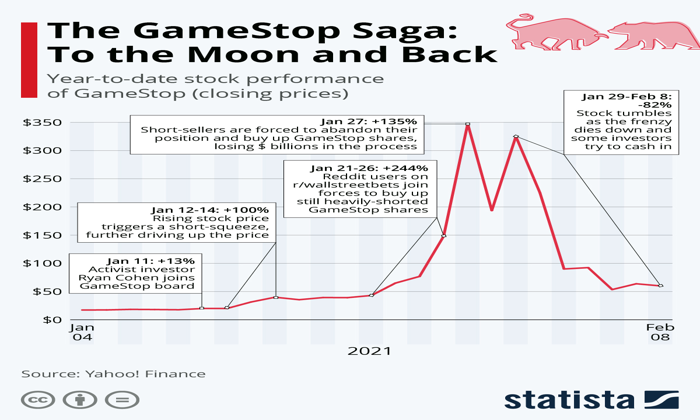The recent Phantom Wallet lawsuit has ignited a significant debate surrounding the security flaw accusations against Phantom Technologies, claiming negligence in protecting users against cryptocurrency theft. Plaintiffs allege that a critical vulnerability within the Phantom wallet led to the loss of over $500,000 in Wiener Doge tokens, marking a troubling example of crypto wallet vulnerabilities that leave users exposed to malware. With the plaintiffs demanding $3.1 million in damages, this case highlights serious concerns about the security measures employed by Phantom in safeguarding digital assets. Moreover, the incident is emblematic of the broader issues facing the cryptocurrency sector, where inadequate protection can lead to devastating financial losses for users. As the case unfolds, the implications of this lawsuit on Phantom Technologies’ reputation and the future of crypto wallet security will be closely watched by investors and users alike.
The legal challenges facing Phantom Wallet point to broader issues in the cryptocurrency market, particularly the responsibilities of wallet providers in ensuring user security. This lawsuit not only seeks redress for the alleged cryptocurrency theft linked to a significant security breach but also raises questions about the overall safety of digital asset management systems. Users are increasingly concerned about how crypto platforms handle security vulnerabilities, especially in light of high-profile incidents like the Wiener Doge theft. As Phantom Technologies prepares to address these accusations, the lawsuit serves as a crucial reminder of the need for robust security measures within crypto wallets to protect user investments. The outcome of the Phantom Technologies lawsuit could set a precedent for accountability in the expanding cryptocurrency landscape.
Understanding the Phantom Wallet Lawsuit: Security Flaws and Allegations
The Phantom Wallet lawsuit underscores serious allegations against Phantom Technologies, particularly highlighting a substantial security flaw that led to the theft of over $500,000 in Wiener Doge tokens. The crux of the complaint, filed by Thomas Liam Murphy and his co-plaintiffs, suggests that Phantom’s cryptocurrency wallet had fundamental vulnerabilities embedded within its design. These vulnerabilities are believed to expose users to malware attacks, ultimately putting their digital assets at risk without the expectation of adequate safeguards or protections.
As the lawsuit unfolds in the Southern District of New York, the allegations reveal that the breach occurred through the extraction of private keys stored in unencrypted browser memory. Such a fundamental lapse raises questions about the adequacy of security measures in place, especially for a wallet managing assets worth an estimated $25 billion. The plaintiffs seek $3.1 million in damages, arguing that Phantom failed to uphold its branding as providing ‘best-in-class’ security by allowing cybercriminals to exploit significant vulnerabilities.
Phantom Wallet Security Flaw: A Critical Examination
At the heart of the current litigation against Phantom Technologies lies the alleged security flaw associated with the Phantom Wallet. Industry experts emphasize that any cryptocurrency wallet should implement stringent security measures, including the encryption of private keys and robust methods to combat malware. However, as claimed in the lawsuit, the negligence in securing these critical components has opened users up to considerable risk, fundamentally undermining trust in the ecosystem.
The implications of such security flaws extend beyond individual users, impacting the broader cryptocurrency landscape. The allegation suggests a systemic issue within the design of the Phantom Wallet, raising concerns over the safety protocols practiced by many other wallets in the market. If these vulnerabilities remain unaddressed, users may continue to face threats from cryptocurrency theft lawsuits and losses stemming from similar security breaches.
The Impact of Cryptocurrency Theft Lawsuits on Users and Investors
The Phantom Wallet lawsuit exemplifies the increasing frequency of cryptocurrency theft lawsuits, where users are seeking legal recourse against wallet providers for alleged security failures. Such cases can lead to significant repercussions for companies operating in the crypto space, as they face scrutiny over management practices and security measures. For users and investors, these lawsuits serve as cautionary tales, highlighting the necessity of conducting thorough research before trusting a wallet with valuable digital assets.
Furthermore, the escalation of cryptocurrency theft lawsuits may fuel larger discussions regarding regulation in the crypto industry. These issues force wallets like Phantom to reassess their security protocols and user communications, especially after incidents involving significant financial losses due to flaws in their infrastructure. It is essential for both existing and potential users to remain vigilant about the security features offered by their chosen wallets and the legal obligations associated with custody of crypto assets.
Phantom Technologies and the Growing Concerns Over Crypto Wallet Vulnerabilities
The Phantom Technologies lawsuit shines a light on the growing concerns concerning crypto wallet vulnerabilities, which have become a significant issue as cryptocurrency adoption expands. Users increasingly demand transparency from wallet providers about how their assets are being stored and secured. The nature of cryptocurrency also means that users often bear the burden of loss when security measures fail, prompting many to question the legitimacy of claims surrounding ‘best-in-class’ security standards.
For Phantom and similar platforms, the challenge lies not only in addressing the allegations but also in fortifying their systems to regain user trust. The lawsuit’s emergence highlights the urgency for wallet providers to optimize security and communicate effectively about potential risks. Failure to do so can lead to further legal challenges and ultimately affect market confidence.
The Wiener Doge Theft: A Cautionary Tale for Crypto Users
The alleged theft of Wiener Doge tokens, which constitutes a substantial portion of the Phantom Wallet lawsuit, serves as a cautionary tale about the perils faced by cryptocurrency users today. This incident exemplifies how quickly vulnerabilities can be exploited, resulting in massive financial losses. As documented in the suit, a cybercriminal leveraged the wallet’s security flaws to access and liquidate tokens, significantly diminishing the value of the entire Wiener Doge project.
For users in the crypto space, this incident underscores the importance of staying aware of potential security issues associated with their wallets. It emphasizes the need for diligence when managing digital assets, as well as an understanding of the technological frameworks used by wallet providers. Greater awareness can buffer users against the harsh realities of cryptocurrency theft, fostering a more secure environment for transactions.
Phantom Wallet’s Response to the Lawsuit: What Superficial Claims Mean for Users
In light of the lawsuit that accuses Phantom Technologies of negligence regarding wallet security, the company’s response will be crucial. The claim that they operate a ‘noncustodial wallet’ implies that the responsibility for losses lies with users, potentially evading accountability. This legal strategy could have profound implications, especially for users who trusted Phantom’s promises of advanced security while suffering during the breach.
For users, such superficial claims can feel dismissive, emphasizing a need for companies to be more accountable for their security practices. The outcome of this legal battle may establish a precedent, urging wallet providers to adopt more robust security measures. It is critical for users to advocate for transparency and responsibility from companies whose services they rely on, ensuring their investments are as secure as possible.
Analyzing the Allegations of Phantom Technologies and OKX’s Involvement
Amidst the allegations cropping up in the Phantom Wallet lawsuit, the involvement of OKX, a cryptocurrency exchange, raises additional concerns pertaining to regulatory compliance and ethical operational practices. The lawsuit claims that Phantom failed to disclose its partnership with OKX, which has a checkered past, admitting guilt to severe charges relating to money laundering. Such connections could implicate Phantom in broader issues of trust within the cryptocurrency landscape.
The interplay between Phantom and OKX brings to the forefront critical discussions about accountability and the responsibility of wallet providers to their users. As they navigate this legal landscape, the pressure mounts on both parties to clarify their roles and maintain user trust while ensuring security. The potential fallout from these allegations could reverberate through the crypto industry, affecting user trust and investor confidence on a larger scale.
The Future of Cryptocurrency Security Post-Phantom Lawsuit
As the Phantom Wallet lawsuit progresses, it paints a larger picture of the future of cryptocurrency security amidst growing scrutiny. The ongoing legal battle underscores a critical need for enhanced security measures and regulations within the cryptocurrency sector. Should the plaintiffs succeed, other wallet providers might face similar legal challenges, motivating them to reassess their security protocols to prevent costly breaches.
Moreover, this lawsuit could pave the way for more stringent governmental regulations in the cryptocurrency space, aiming to ensure that technologies deployed by wallets prioritize user security. All eyes will be on Phantom as the case unfolds, with users, investors, and regulators keenly observing how the outcome might shift the landscape of crypto security measures.
Learning Lessons from Phantom’s Security Vulnerabilities to Enhance User Safety
The exposure of Phantom Wallet’s security vulnerabilities serves as a wake-up call for millions of cryptocurrency users. Learning from this incident is paramount for enhancing user safety and awareness. This lawsuit highlights the significance of ensuring that those holding digital assets take appropriate precautions by selecting wallets that place emphasis on security measures, such as encrypted storage and comprehensive fraud protection.
The Phantom Wallet case is not merely a legal issue; it is a rich source of lessons for the entire cryptocurrency ecosystem. Users should learn to investigate the security protocols employed by their wallets actively. Furthermore, the lawsuit may encourage wallet providers to not just focus on the ease of use but also prioritize user safety, creating a more secure infrastructure for digital asset management going forward.
Frequently Asked Questions
What are the main claims in the Phantom Wallet lawsuit regarding cryptocurrency theft?
The Phantom Wallet lawsuit centers on allegations that security vulnerabilities within the wallet allowed for the theft of over $500,000 worth of Wiener Doge tokens. Plaintiffs claim that Phantom Technologies failed to protect users from malware and did not secure private keys properly, leading to unauthorized access to user funds.
How did the alleged Phantom Wallet security flaw contribute to the cryptocurrency theft?
Plaintiffs in the Phantom Wallet lawsuit argue that the security flaw allowed hackers to access private keys stored in unencrypted browser memory. This vulnerability made it possible for cybercriminals to execute attacks without needing to bypass multi-factor authentication, leading to significant cryptocurrency theft.
What is the significance of the Wiener Doge theft in the Phantom Wallet lawsuit?
The Wiener Doge theft is a key aspect of the Phantom Wallet lawsuit, as it represents the financial damage suffered by the plaintiffs. The lawsuit seeks over $3.1 million in damages, citing that the theft, facilitated by vulnerabilities in the Phantom wallet, caused the value of the Wiener Doge tokens to plummet.
Are users of Phantom Wallet at risk due to wallet vulnerabilities?
The Phantom Wallet lawsuit raises concerns about the security of cryptocurrency wallets and users’ safety. The allegations point to fundamental design flaws in Phantom’s capabilities to protect users from potential malware and theft. Users should be aware of these risks when using Phantom Wallet or similar services.
What are the potential financial implications for Phantom Technologies from this lawsuit?
If the plaintiffs succeed in the Phantom Wallet lawsuit, Phantom Technologies could face damages exceeding $3.1 million for their alleged role in enabling significant cryptocurrency theft through security flaws. These implications could affect the company’s reputation and user trust given its valuation of over $3 billion.
What measures could Phantom Technologies take to address the issues raised in the lawsuit?
In response to the allegations in the Phantom Wallet lawsuit, Phantom Technologies could enhance their security features, implement stronger encryption methods for private key storage, and offer improved user education on security practices. They may also need to review and upgrade their transaction monitoring systems to prevent further vulnerabilities.
How does the Phantom Wallet lawsuit relate to broader cryptocurrency security concerns?
The lawsuit against Phantom Technologies highlights ongoing issues regarding security in the cryptocurrency space, particularly pertaining to wallet vulnerabilities and user protection. As cryptocurrency theft remains a significant risk, this case could prompt broader discussions about regulatory standards and security measures across the industry.
What impact does the Phantom Wallet lawsuit have on the cryptocurrency market?
The Phantom Wallet lawsuit has the potential to impact user confidence in cryptocurrency wallets and trading platforms, especially if securities vulnerabilities are proven. It may lead to tighter regulations and more stringent security standards within the cryptocurrency market, affecting operations for companies like Phantom Technologies.
Has Phantom Technologies responded to the allegations in the lawsuit?
As of now, Phantom Technologies has not publicly responded to the allegations made in the Phantom Wallet lawsuit. The lack of response leaves investors and users awaiting their official stance on the security flaws and related claims.
What are the key takeaways from the Phantom Wallet lawsuit for cryptocurrency users?
Key takeaways from the Phantom Wallet lawsuit include the importance of understanding security vulnerabilities in cryptocurrency wallets, the necessity of using secure storage methods for private keys, and the need to stay informed about potential legal implications of using various crypto platforms.
| Key Points |
|---|
| Lawsuit filed against Phantom Technologies for security flaws leading to theft of $500,000 in Wiener Doge tokens. |
| Plaintiffs, including Thomas Liam Murphy, are seeking $3.1 million in damages for alleged cryptocurrency theft and malware exposure. |
| Phantom’s wallet reportedly stored private keys in unencrypted browser memory, making them susceptible to malware attacks. |
| Cybercriminal accessed personal computer of a developer to steal private keys without bypassing multi-factor authentication. |
| Phantom reportedly has $25 billion in assets and 10 million active users, branding itself as a secure wallet for Solana blockchain. |
| Legal claims include Phantom’s lack of transaction checks and integration with OKX, which faced federal charges for money laundering. |
| Plaintiffs argue that Phantom operated as an unregistered trading platform violating the Commodity Exchange Act. |
| Phantom has not yet publicly commented on the lawsuit or the specific allegations made against them. |
Summary
The Phantom Wallet lawsuit highlights serious allegations against the cryptocurrency wallet provider regarding significant security vulnerabilities. In this case, plaintiffs claim that Phantom Wallet’s lack of proper safeguarding measures led to the theft of over $500,000 in cryptocurrency due to malware access. This incident raises concerns about user safety and the integrity of cryptocurrency platforms, prompting calls for greater transparency and accountability in the industry.
The Phantom Wallet lawsuit has recently gained significant attention, as plaintiffs allege that a critical security flaw in the Phantom cryptocurrency wallet led to the theft of over $500,000 worth of Wiener Doge tokens. Filed by a group of developers, this lawsuit claims that Phantom Technologies inadequately protected users from cybersecurity threats, resulting in malware infiltration and substantial financial losses. As the cryptocurrency theft lawsuit unfolds, the key allegation rests on Phantom’s inability to secure private keys stored in unencrypted browser memory, leaving them vulnerable to hackers. With users trusting Phantom’s supposed ‘best-in-class’ security, the case highlights serious concerns about crypto wallet vulnerabilities that could impact millions of users. The plaintiffs are seeking $3.1 million in damages, suggesting the dire implications of these allegations for Phantom and the broader crypto community.
In a striking legal development, the allegations surrounding the Phantom Technologies lawsuit underscore a considerable breach of user trust regarding a popular cryptocurrency wallet. The lawsuit brings forth concerns about the security risks that users face, pointing to inadequacies in protecting sensitive information like private keys from potential threats. As accusations of a significant theft of meme coins circulate, the case exemplifies the pressing issue of vulnerabilities within digital asset wallets. As the cryptocurrency ecosystem continues to mature, scrutiny over wallet security becomes imperative to safeguard against losses that can arise from cybersecurity breaches. The Phantom lawsuit may well serve as a pivotal moment in highlighting the need for robust security measures in the ever-evolving world of digital currencies.
















Leave a Reply